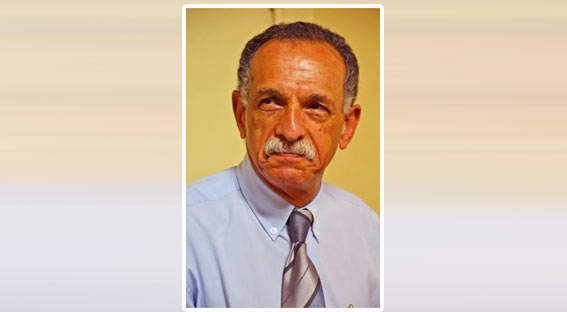The upcoming presidential election in 2024 has been the topic of wide political controversy in Egypt, an admittedly positive feature that warrants close monitoring. A number of candidates are ready to contend the election, constituting a robust endeavour at peaceful power rotation to lead this country. The question, however, is the position each candidate occupies on the political arena, the public appeal that individual enjoys on the Egyptian street, the agenda offered by the candidate on serving Egypt domestically and internationally, and safeguarding national security.
Even if many Egyptians support President Sisi running for another term, basing on his phenomenal achievements, this does not preclude the democratic procedure of multiple candidate election, and may the best man win the confidence of Egyptians.
It is natural then that much talk would circulate supporting President Sisi and citing his successes. But a specific report on this topic caught my eye lately, one that was aired from outside Egypt; it drew my attention starting with its title and on to its content. I decided to share it with my readers because it obviously focuses more on Egypt and its national security than on President Sisi himself.
The report comes under the title: “Secrets of Operation 2024 to fell Sisi”. It starts with the question: “Why should Sisi be made to fail in 2024, by friends more than by foes?”. The answer:
“Campaigns against Sisi grow harsher by the day, given that he crossed seven red lines. This has made him a persona non grata with the West, Israel, and regional friends even more than foes. Sisi has shattered seven bans that had been imposed on Egypt to restrict its power and ability, limit its influence, increase its submission, and besiege its national independence.
“First, Sisi crossed all the red lines drawn on arming the Egyptian military, starting with converting Egypt’s air force to a long range one; also the country’s naval forces by providing them with helicopter carriers, submarines, and giant frigates. He also developed missile systems, and localised the production technology with each arms deal he made. More importantly, this was all achieved through a policy of diversifying the sources of arms. The result: the stronger Egypt’s army grew, the more influential the country’s regional clout. Egypt became the major power defying the Greater Middle East Project conspiracy that ruined Iraq, Syria, and Libya by destroying their armies.
“Second: President Sisi succeeded in implementing projects that pulled the rug from underneath the economies of Israel and a number of regional players. Major among these projects has been the development of al-Arish Port; building the railway lines of Taba/Arish, Arish/Port Said, and Ain Sukhna/Alamein; in addition to the Suez Canal road axis and the road network connecting Egypt’s ports. These projects destroyed the ambitions of Israel and other countries in the region to be main trade centres in the Chinese Road and Belt initiative; Egypt looked to have matters in its favour.
“Third: Egypt was able to dominate the Mediterranean Gas Forum, based in Cairo, given that the country became the largest regional gas dealer once it grew from a deficient gas producer to one with spare capacity to export to Europe.
“Fourth: Egypt’s plans for electric connectivity with Europe, Africa, and Asia succeeded once it was able to double its power production. This placed the country in a position of substantial political, economic, and military clout.
“Fifth: Developing the Sinai Peninsula, and connecting it to the Egyptian mainland through a network of tunnels, railroads, and new towns. This move constituted both an act of defence as well as development. It had the effect of forever dropping the Peninsula out of any dreams of return entertained by its former terrorist occupiers.
“Sixth: Achieving to a substantial degree self-sufficiency in food and medicine, which together form the sides of the national independence square; the other two being energy and arms. Today, Egypt’s agricultural projects extend from Toshke in the south to the New Delta and Sharq al-Uwainat in the north, in addition to water desalination and treatment projects, were able to add an extra three million arable feddans, some 25 per cent of Egypt’s cultivated land in the Nile Valley and Delta.
“Seventh: Emerging out of the cloak of the West, and embracing relations with Russia, China, and India so as not to belong to any specific bloc. This called for a sensitively balanced diplomatic policy in a time that sees the most severe international political polarisation since the last world war and the Cold War that ensued.”
President Sisi has indeed broken all the red lines cited here, defying East and West, friends and foes. Is it any surprise then that there should be increasing systemic campaigns against his candidacy for another presidential term? The obvious reason being to strangle his project of Egyptian independence. This is not about Sisi, it is about Egypt.
Watani International
22 September 2023










